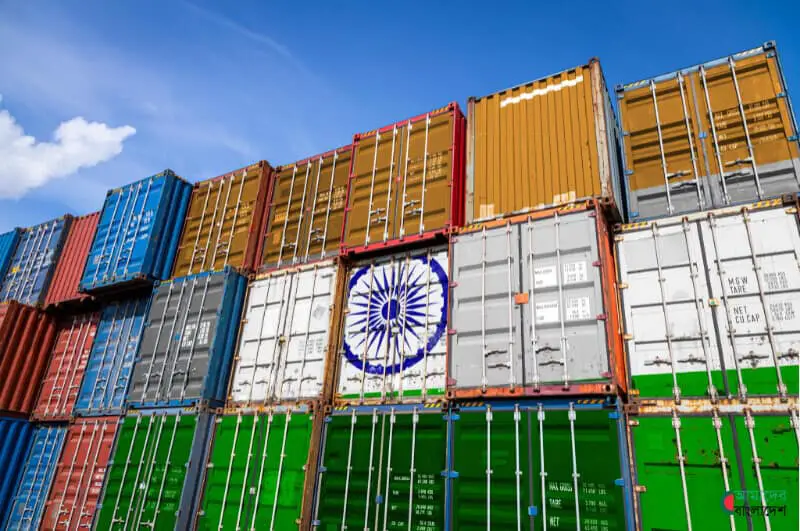There are many benefits of doing business with Bangladesh. It is a large country with a growing economy and an increasing population.
In the first quarter of 2017, Bangladesh exported $5.7 billion in goods to India, which is the highest export figure for any other country in Asia and its share in total Indian exports was 6.5%.
The lifting of international trade restrictions on textiles from Bangladesh has led to a boom in textile exports to India, according to data from the Indian Ministry of Commerce.
Bangladesh is seeing a surge in exports to India. Bangladesh is also exporting its natural resources such as leather, textiles, electricity, tea, agricultural crops, and vegetables to India.
The trade worth $4 billion in 2018 has increased each year since 1990. Bangladesh’s low labor costs help it to be competitive in the Indian market.
With good export numbers and few labor costs, this partnership between the two countries is growing rapidly over the last few decades.
List Of Items Bangladesh Exports To India
- Clothing for men, women, and children, including T-shirts, singlets and other vests, knitted or crocheted
- Women’s suits, ensembles, jackets, blazers, dresses, skirts: divided skirts, trousers & bib and brace overalls: breeches & shorts other than swimwear
- Suits, shirts, blouses, trousers, suits, and more from the Men’s Department
- Jersey, pullover, cardigan, waistcoat, and similar articles made of wool, or crocheted or knitted with animal hair
- Baby clothing, knits, and crochets
- Women’s clothes for the office, school, and work
- Men’s or boys’ shirts
- Baby clothes
- Women’s blouses, shirts, or shirt blouses
- Men’s or boys’ suits, ensembles, jackets, blazers, trousers, brace overalls, breeches and shorts (other than swimwear), knitted or crocheted
- Men’s and boys’ shirts, knitted and crocheted
- Women’s clothing includes slips, petticoats, briefs, panties, nightdresses, pajamas, and dressing gowns.
- Other furniture and parts thereof
- Rags, scrap twine, cordage, rope and cables, and worn out articles of twine, cordage, rope, or cables
- Overcoats, carcoats, capes, cloaks, and similar articles are not subject to customs duty.
- Men’s or Boys’ underpants, briefs, nightshirts, pajamas, bathrobe, and dressing gowns
- Men’s or boys’ coats and jackets, including winter coats, ski coats, raincoats, and similar items other than those of heading 6203.
- Bra, girdle, corset, suspension & garters
- Swimming gear, including swimsuits and swimming clothes for use during exercise or casual wear.
- Slide fasteners and their parts are available in many different styles.
- Hosiery includes tights, stockings, socks, and hosiery that is designed for specific purposes such as varicose veins or no-soled shoes.
- cases of all types – from the most necessary to the most fashionable – are an essential part of our lives. From trunks for business trips to suitcases for holiday travels, estate sales,s or vintage shopping, these bags are something we depend on when it comes to everyday convenience.
- Jute yarn is a type of yarn made from the bast fibers of the jute plant.
- Women’s or Girls’ blouses, shirts and shirt blouses, knitted or crocheted
- Shoes that have rubber or plastic soles, with textile uppers.
- Cotton yarn waste
- As well as clothing, other objects can be made with yarn or thread.
- Hats, headbands, and other forms of headwear are not made of animal parts. They can be knitted or crocheted, made from lace fabric, or other textile products. They can also be gathered into a single piece.
- Woven fabrics of jute or other textile base fibers
- Other made up clothing accessories; parts of garments or of clothing accessories
- Fish Fillets and other fish meat – Salmonidae, excluding lives & eels:
- Paper or paperboard labels of all kinds
- Other fixed vegetable fats and oils (including jojoba oil) and their fractions, whether or not refined.
- Jute, cotton, and other textile bast fibers (excluding flax, true hemp, and ramie), raw or processed but not spun; tow and waste of these fibers (including yarn waste and garnetted stock)
- Track, ski, and swimwear suits are often worn as sportswear. Knitted tracksuits or crocheted tracksuits are on the rise due to their ease of moving, breathability, and better durability.
- A fabric that is woven of cotton, containing 85% or more by weight of cotton and weighing up to 200 grams per square meter.
- Women’s or girls’ coats, car coats, capes, cloaks, anoraks (including ski jackets), windcheaters, wind jackets, and similar articles.
- Garments made up of fabrics
- Sacks and bags, of a kind used for the packing of goods
- Bread, pastry, cakes, biscuits, and other bakers’ wares.
- Sugar confectionery (including white chocolate), not containing cocoa
- Other items, plastics, and articles of other materials
- Twine, cord, ropes, and cables can be made out of various materials that include plaited or braided fibers, coated or sheathed with rubber or plastic fibers.
- Other shoes with rubber or plastic soles are sports shoes that are available for purchase.
- Coats, jackets, sweaters, trousers
- Float glass and surface ground or polished glass, in sheets, either of which may include an absorbent, reflective or non-reflective layer. Such glass is not otherwise worked.
- Waters, including mineral waters and aerated waters, adding sweeteners or other flavors and containing any amount of alcohol-free versions of alcoholic beverages.
- labels, badges, and other textile materials may be cut or sewn to shape, size or design
- Canned meat of bovine or equine animals, without hair or fur on the hide.
- Bicycles, cycles including delivery trikes, and not motorized
- Shawls, scarves, mufflers, mantillas, veils, and the like.
- Made up fishing nets and other made up nets, of textile materials; branches, straw, vines
- Electric accumulators, including separators therefor, whether they are rectangular or square
- Tableware, kitchenware & personal care items made of plastics
- Ferrous waste and scrap; remelting scrap ingots of iron or steel
- Polyacetals, epoxies, and other polyesters are all primary forms. A few types of polycarbonates are also primary forms.
- Industrial monocarboxylic fatty acids; acid oils from refining; industrial fatty alcohols
- Uncoated paper and paperboard, which is used for writing, printing, or other graphic purposes, and nonperforated punch card and punch tape paper.
- Other made up clothing accessories, knitted or crocheted; knitted or crocheted parts of garments or of clothing accessories
- Hair accessories like curling grips, hair curlers, and combs are becoming more common. They can save some time during your morning routine and help get you ready quicker!
- toilet paper, dish towels, napkins, sheets of paper for writing
- Eyeglasses, goggles, safety glasses, prescription lenses can benefit many people and these benefits can range from eye health to safety. These are recommended for adults as well as children.
- Ties, bow ties, and cravats
- Polymers are generally found in primary forms.
- Articles for the conveyance or packing of goods, of plastics; stoppers, lids, caps and other closures, of plastics
- Tarpaulins, awnings, and sunblinds; tents; sails for boats, sailboards, or landcraft; camping goods
- Pool, spa, wading pool, spa bathtub
- Mattress foundations; articles of bedding and similar furnishings (for example, mattresses, quilts, eiderdowns, cushions, poufs, and pillows)
- Silk pile curtain or towel for bathroom, kitchen, and bedroom.

